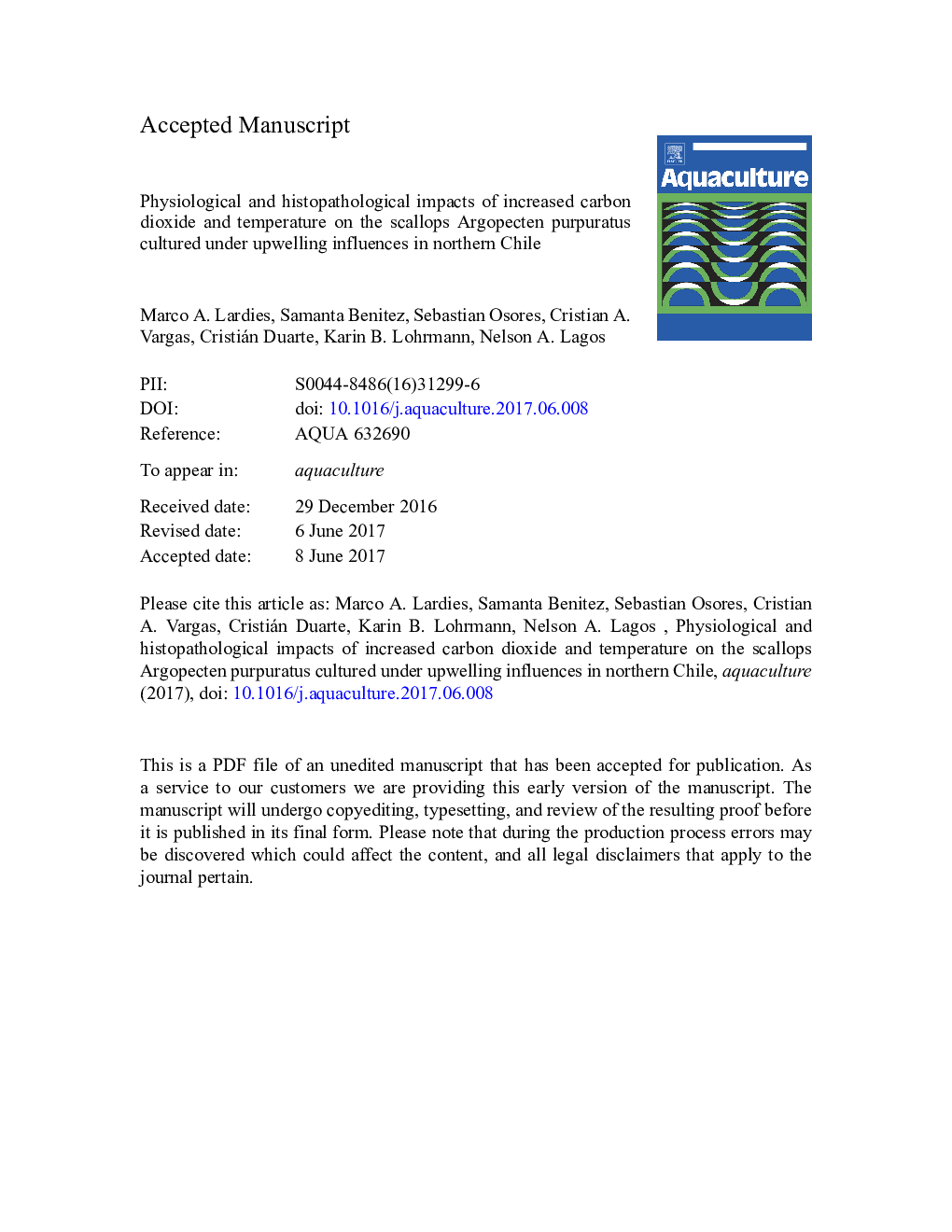| Article ID | Journal | Published Year | Pages | File Type |
|---|---|---|---|---|
| 5539274 | Aquaculture | 2017 | 42 Pages |
Abstract
In addition to the increase in temperature occurring in the world's oceans, new evidences suggest a tendency for an increase in upwelling-favorable winds, bringing to surface cold and high pCO2 corrosive waters. Changing temperature and pCO2 conditions may have significant implications for the shellfish farming socio-ecological system. In order, to setup the basis for understand the impact of both environmental variables, in this study, we investigated the combined effects of changing temperature and pCO2 on the physiological rates and histopathology of scallops Argopecten purpuratus farmed in Tongoy Bay, an area permanently influenced by coastal upwelling. Juvenile scallops were reared at two pCO2 levels (400 and 1000 μatm) and two temperatures (14 and 18 °C). After 18 d of experimental exposure, growth, metabolic and clearance rates increased significantly at high temperature but independent of pCO2 level, indicating a positive effect of warming on the physiological processes associated with energy acquisition. However, ingestion rates of scallops showed a synergistic interactive effect when exposed to both stressors. Increased pCO2 also impacts the health of A. purpuratus through atrophy in the digestive gland. These results suggest that, the presence of trade-offs in energy allocation during upwelling-induced stress (low temperature and high pCO2) can impact growth, metabolism, ingestion rates and health status of scallops cultured in Tongoy Bay. But, less severe response to high pCO2 levels, suggest that natural variability in upwelling areas may promote acclimation and adaptation potential in this farmed scallops.
Related Topics
Life Sciences
Agricultural and Biological Sciences
Aquatic Science
Authors
Marco A. Lardies, Samanta Benitez, Sebastian Osores, Cristian A. Vargas, Cristián Duarte, Karin B. Lohrmann, Nelson A. Lagos,
